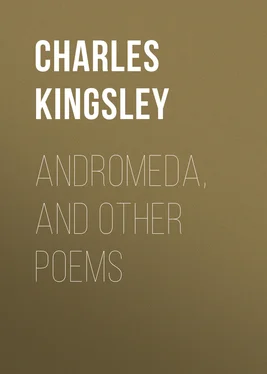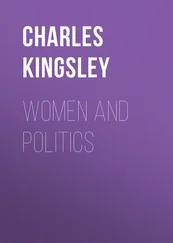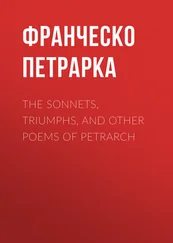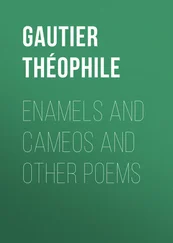Charles Kingsley - Andromeda, and Other Poems
Здесь есть возможность читать онлайн «Charles Kingsley - Andromeda, and Other Poems» — ознакомительный отрывок электронной книги совершенно бесплатно, а после прочтения отрывка купить полную версию. В некоторых случаях можно слушать аудио, скачать через торрент в формате fb2 и присутствует краткое содержание. Жанр: foreign_poetry, literature_19, Поэзия, foreign_antique, foreign_prose, на английском языке. Описание произведения, (предисловие) а так же отзывы посетителей доступны на портале библиотеки ЛибКат.
- Название:Andromeda, and Other Poems
- Автор:
- Жанр:
- Год:неизвестен
- ISBN:нет данных
- Рейтинг книги:5 / 5. Голосов: 1
-
Избранное:Добавить в избранное
- Отзывы:
-
Ваша оценка:
- 100
- 1
- 2
- 3
- 4
- 5
Andromeda, and Other Poems: краткое содержание, описание и аннотация
Предлагаем к чтению аннотацию, описание, краткое содержание или предисловие (зависит от того, что написал сам автор книги «Andromeda, and Other Poems»). Если вы не нашли необходимую информацию о книге — напишите в комментариях, мы постараемся отыскать её.
Andromeda, and Other Poems — читать онлайн ознакомительный отрывок
Ниже представлен текст книги, разбитый по страницам. Система сохранения места последней прочитанной страницы, позволяет с удобством читать онлайн бесплатно книгу «Andromeda, and Other Poems», без необходимости каждый раз заново искать на чём Вы остановились. Поставьте закладку, и сможете в любой момент перейти на страницу, на которой закончили чтение.
Интервал:
Закладка:
Charles Kingsley
Andromeda, and Other Poems
ANDROMEDA
Over the sea, past Crete, on the Syrian shore to the southward,
Dwells in the well-tilled lowland a dark-haired Æthiop people,
Skilful with needle and loom, and the arts of the dyer and carver,
Skilful, but feeble of heart; for they know not the lords of Olympus,
Lovers of men; neither broad-browed Zeus, nor Pallas Athené,
Teacher of wisdom to heroes, bestower of might in the battle;
Share not the cunning of Hermes, nor list to the songs of Apollo.
Fearing the stars of the sky, and the roll of the blue salt water,
Fearing all things that have life in the womb of the seas and the livers,
Eating no fish to this day, nor ploughing the main, like the Phœnics,
Manful with black-beaked ships, they abide in a sorrowful region,
Vexed with the earthquake, and flame, and the sea-floods, scourge of Poseidon.
Whelming the dwellings of men, and the toils of the slow-footed oxen,
Drowning the barley and flax, and the hard-earned gold of the harvest,
Up to the hillside vines, and the pastures skirting the woodland,
Inland the floods came yearly; and after the waters a monster,
Bred of the slime, like the worms which are bred from the slime of the Nile-bank,
Shapeless, a terror to see; and by night it swam out to the seaward,
Daily returning to feed with the dawn, and devoured of the fairest,
Cattle, and children, and maids, till the terrified people fled inland.
Fasting in sackcloth and ashes they came, both the king and his people,
Came to the mountain of oaks, to the house of the terrible sea-gods,
Hard by the gulf in the rocks, where of old the world-wide deluge
Sank to the inner abyss; and the lake where the fish of the goddess,
Holy, undying, abide; whom the priests feed daily with dainties.
There to the mystical fish, high-throned in her chamber of cedar,
Burnt they the fat of the flock; till the flame shone far to the seaward.
Three days fasting they prayed; but the fourth day the priests of the goddess,
Cunning in spells, cast lots, to discover the crime of the people.
All day long they cast, till the house of the monarch was taken,
Cepheus, king of the land; and the faces of all gathered blackness.
Then once more they cast; and Cassiopœia was taken,
Deep-bosomed wife of the king, whom oft far-seeing Apollo
Watched well-pleased from the welkin, the fairest of Æthiop women:
Fairest, save only her daughter; for down to the ankle her tresses
Rolled, blue-black as the night, ambrosial, joy to beholders.
Awful and fair she arose, most like in her coming to Here,
Queen before whom the Immortals arise, as she comes on Olympus,
Out of the chamber of gold, which her son Hephæstos has wrought her.
Such in her stature and eyes, and the broad white light of her forehead.
Stately she came from her place, and she spoke in the midst of the people.
‘Pure are my hands from blood: most pure this heart in my bosom.
Yet one fault I remember this day; one word have I spoken;
Rashly I spoke on the shore, and I dread lest the sea should have heard it.
Watching my child at her bath, as she plunged in the joy of her girlhood,
Fairer I called her in pride than Atergati, queen of the ocean.
Judge ye if this be my sin, for I know none other.’ She ended;
Wrapping her head in her mantle she stood, and the people were silent.
Answered the dark-browed priests, ‘No word, once spoken, returneth,
Even if uttered unwitting. Shall gods excuse our rashness?
That which is done, that abides; and the wrath of the sea is against us;
Hers, and the wrath of her brother, the Sun-god, lord of the sheepfolds.
Fairer than her hast thou boasted thy daughter? Ah folly! for hateful,
Hateful are they to the gods, whoso, impious, liken a mortal,
Fair though he be, to their glory; and hateful is that which is likened,
Grieving the eyes of their pride, and abominate, doomed to their anger.
What shall be likened to gods? The unknown, who deep in the darkness
Ever abide, twyformed, many-handed, terrible, shapeless.
Woe to the queen; for the land is defiled, and the people accursed.
Take thou her therefore by night, thou ill-starred Cassiopœia,
Take her with us in the night, when the moon sinks low to the westward;
Bind her aloft for a victim, a prey for the gorge of the monster,
Far on the sea-girt rock, which is washed by the surges for ever;
So may the goddess accept her, and so may the land make atonement,
Purged by her blood from its sin: so obey thou the doom of the rulers.’
Bitter in soul they went out, Cepheus and Cassiopœia,
Bitter in soul; and their hearts whirled round, as the leaves in the eddy.
Weak was the queen, and rebelled: but the king, like a shepherd of people,
Willed not the land should waste; so he yielded the life of his daughter.
Deep in the wane of the night, as the moon sank low to the westward,
They by the shade of the cliffs, with the horror of darkness around them,
Stole, as ashamed, to a deed which became not the light of the sunshine,
Slowly, the priests, and the queen, and the virgin bound in the galley,
Slowly they rowed to the rocks: but Cepheus far in the palace
Sate in the midst of the hall, on his throne, like a shepherd of people,
Choking his woe, dry-eyed, while the slaves wailed loudly around him.
They on the sea-girt rock, which is washed by the surges for ever,
Set her in silence, the guiltless, aloft with her face to the eastward.
Under a crag of the stone, where a ledge sloped down to the water;
There they set Andromeden, most beautiful, shaped like a goddess,
Lifting her long white arms wide-spread to the walls of the basalt,
Chaining them, ruthless, with brass; and they called on the might of the Rulers.
‘Mystical fish of the seas, dread Queen whom Æthiops honour,
Whelming the land in thy wrath, unavoidable, sharp as the sting-ray,
Thou, and thy brother the Sun, brain-smiting, lord of the sheepfold,
Scorching the earth all day, and then resting at night in thy bosom,
Take ye this one life for many, appeased by the blood of a maiden,
Fairest, and born of the fairest, a queen, most priceless of victims.’
Thrice they spat as they went by the maid: but her mother delaying
Fondled her child to the last, heart-crushed; and the warmth of her weeping
Fell on the breast of the maid, as her woe broke forth into wailing.
‘Daughter! my daughter! forgive me! Oh curse not the murderess! Curse not!
How have I sinned, but in love? Do the gods grudge glory to mothers?
Loving I bore thee in vain in the fate-cursed bride-bed of Cepheus,
Loving I fed thee and tended, and loving rejoiced in thy beauty,
Blessing thy limbs as I bathed them, and blessing thy locks as I combed them;
Decking thee, ripening to woman, I blest thee: yet blessing I slew thee!
How have I sinned, but in love? Oh swear to me, swear to thy mother,
Never to haunt me with curse, as I go to the grave in my sorrow,
Childless and lone: may the gods never send me another, to slay it!
See, I embrace thy knees—soft knees, where no babe will be fondled—
Swear to me never to curse me, the hapless one, not in the death-pang.’
Weeping she clung to the knees of the maid; and the maid low answered—
‘Curse thee! Not in the death-pang!’ The heart of the lady was lightened.
Slowly she went by the ledge; and the maid was alone in the darkness.
Watching the pulse of the oars die down, as her own died with them,
Tearless, dumb with amaze she stood, as a storm-stunned nestling
Fallen from bough or from eave lies dumb, which the home-going herdsman
Fancies a stone, till he catches the light of its terrified eyeball.
So through the long long hours the maid stood helpless and hopeless,
Интервал:
Закладка:
Похожие книги на «Andromeda, and Other Poems»
Представляем Вашему вниманию похожие книги на «Andromeda, and Other Poems» списком для выбора. Мы отобрали схожую по названию и смыслу литературу в надежде предоставить читателям больше вариантов отыскать новые, интересные, ещё непрочитанные произведения.
Обсуждение, отзывы о книге «Andromeda, and Other Poems» и просто собственные мнения читателей. Оставьте ваши комментарии, напишите, что Вы думаете о произведении, его смысле или главных героях. Укажите что конкретно понравилось, а что нет, и почему Вы так считаете.












